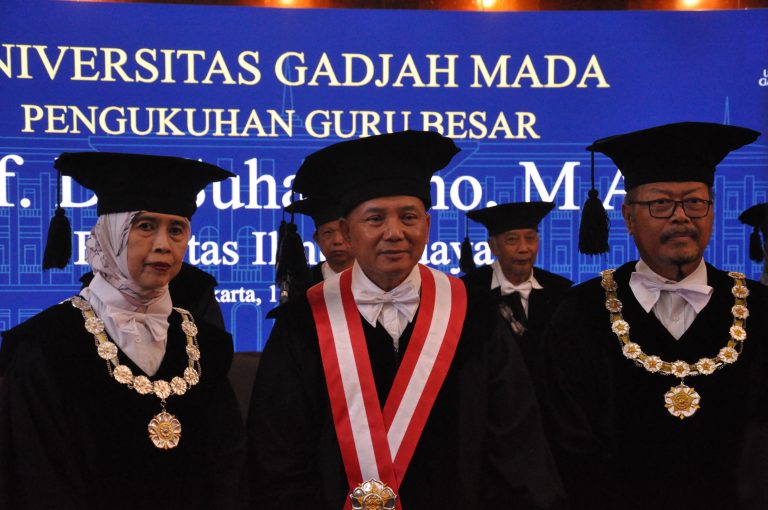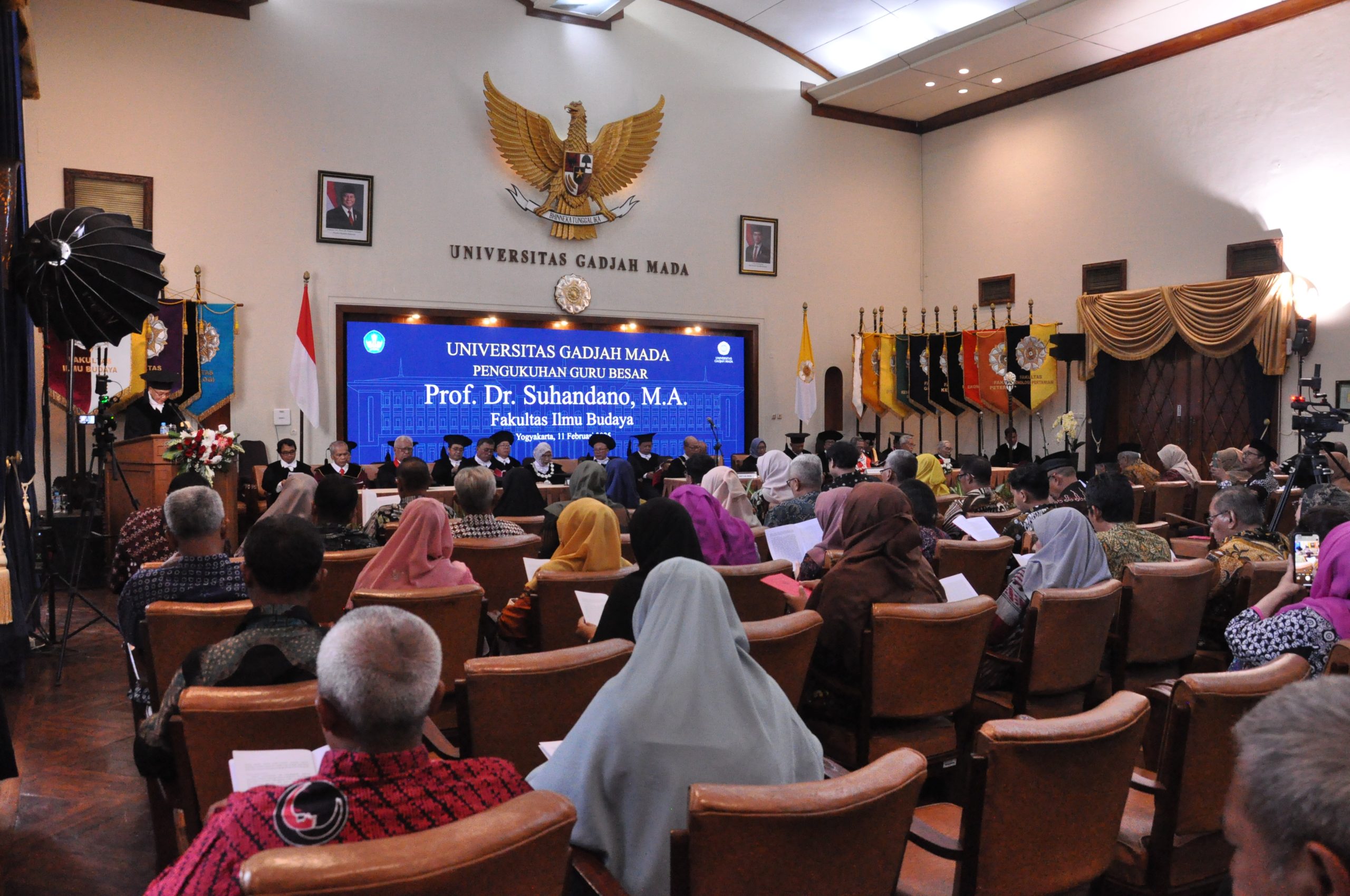
Yogyakarta, 11/2/2025 – Universitas Gadjah Mada’s Senate Hall was filled with enthusiasm and pride as the university celebrated the inauguration of Prof. Dr. Suhandono, M.A. as Professor in the Faculty of Humanities, specialising in Anthropological Linguistics. The event took place on Tuesday, 11 February 2025, and was attended by distinguished faculty members, students, as well as guests from various academic institutions.
In his speech, Prof Suhandono emphasised the importance of positive discourse analysis within the framework of ecolinguistics. He explained how language not only reflects speakers’ views on the environment, but also influences the way they think and act towards it. This link between language and environmental awareness is particularly important in the context of the Sustainable Development Goals (SDGs), particularly in education.
Prof. Suhandono points out that while language alone may not hold the key to solving environmental problems, it has a significant role in shaping people’s attitudes and behaviours. He argues that through education, individuals can be equipped with the linguistic tools necessary to engage in meaningful discussions about environmental conservation and sustainability.

Source: Public Relation Faculty of Cultural Sciences, Ebid El Hakim
One of the key examples he provides is the concept of ‘wit angker,’ or haunted trees, which serve as a cultural strategy for environmental conservation. This traditional practice highlights how local wisdom and language can contribute to sustainable practices, demonstrating the interplay between culture, language and environmental management.
The professor further explained how positive discourse can encourage a sense of environmental responsibility. By promoting narratives that celebrate nature and encourage sustainable practices, educators can inspire students to become active participants in environmental conservation efforts. This is in line with the SDGs’ focus on quality education and sustainable communities.
In closing, the celebration of Prof Suhandono’s achievements serves as a reminder of the vital role education plays in shaping a sustainable future. By harnessing the power of language, we can develop a deeper understanding of our environment and empower individuals to take action for a better world.
[Public Relation Faculty of Cultural Sciences UGM, Bulan Churniati]

